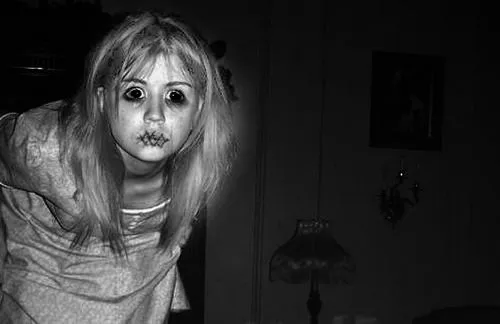In the vast expanse of the internet, where information and entertainment intermingle, there exists a darker side that often goes unnoticed—the realm of creepy websites. These virtual corners of the web harbor an eerie allure that captivates and unsettles in equal measure. In this article, we delve into the intriguing world of creepy websites, exploring their nature, impact, and the reasons behind our fascination with the macabre.
Table of Contents
- Introduction
- The Allure of the Macabre
- Diving into Creepy Websites
- 3.1 The Origin of Creepy Web Culture
- 3.2 Types of Creepy Websites
- The Psychology Behind the Obsession
- 4.1 The Thrill of Fear
- 4.2 Unveiling the Unknown
- Ethical Concerns and Legal Boundaries
- 5.1 Crossing the Line: Exploring Legal Grey Areas
- Famous Creepy Websites
- 6.1 Creepypasta: Where Fiction Meets Fear
- 6.2 The Mysterious Case of Sad Satan
- Impact on Internet Culture
- The Role of Urban Legends
- Coping with the Creepiness
- 9.1 The Role of Dark Humor
- 9.2 When Curiosity Becomes Overwhelming
- The Internet’s Enduring Fascination with the Macabre
- Conclusion
Introduction
The internet has revolutionized the way we access information, connect with others, and entertain ourselves. Amid the vast digital landscape, a peculiar subculture thrives—creepy websites. These sites, often shrouded in mystery and designed to evoke unease, draw in curious visitors from around the world. But what drives our fascination with the unsettling and eerie?
The Allure of the Macabre
Human psychology has long been intrigued by the unknown and the macabre. Creepy websites tap into our innate curiosity about the mysterious and unfamiliar, offering a voyeuristic glimpse into the darker aspects of life. Whether it’s tales of supernatural encounters or disturbing imagery, these sites pique our interest in a way that conventional content cannot.
Diving into Creepy Websites
The Origin of Creepy Web Culture
Creepy web culture finds its roots in urban legends and folklore. Stories of haunted places and unsolved mysteries have been an integral part of human storytelling for centuries. With the advent of the internet, these narratives found a new medium to thrive in, leading to the creation of websites dedicated to curating and sharing such eerie tales.
Types of Creepy Websites
Creepy websites come in various forms, each catering to different aspects of the eerie. Some offer a collection of chilling stories, known as creepypasta, while others present enigmatic puzzles for users to decipher. There are also sites that showcase unsettling images and videos, exploiting our vulnerability to the visual and auditory.
The Psychology Behind the Obsession
The Thrill of Fear
Fear triggers a primal response within us, releasing adrenaline and heightening our senses. Creepy websites harness this physiological reaction, providing a controlled environment in which to experience fear without actual danger. The adrenaline rush and subsequent relief reinforce our interest, creating a cycle of fascination.
Unveiling the Unknown
Curiosity is a fundamental human trait, and creepy websites play into this by offering a glimpse into the unknown. They invite us to explore the uncharted territories of our minds, often prompting us to question our perceptions of reality. The appeal lies in uncovering hidden truths and confronting our deepest fears.
Ethical Concerns and Legal Boundaries
While creepy websites might thrive on our curiosity, ethical concerns loom large. Many of these sites push the boundaries of privacy, exploiting personal tragedies for entertainment. The legal implications are equally murky, as some content blurs the line between free expression and harmful intent. As consumers of such content, we’re challenged to consider the ethical implications of our curiosity.
Famous Creepy Websites
Creepypasta: Where Fiction Meets Fear
Creepypasta, a term coined in the early 2000s, refers to short horror stories and urban legends spread across the internet. These tales often feature supernatural elements, haunting readers with their vivid imagery and unsettling themes. Creepypasta exemplifies how the online world has become a breeding ground for collective storytelling.
The Mysterious Case of Sad Satan
Sad Satan gained notoriety as an alleged “dark web game,” rumored to contain disturbing and illegal content. While the truth behind these claims is dubious, the story of Sad Satan highlights how the internet’s anonymity can fuel wild speculations and add to a website’s mystique.
Impact on Internet Culture
Creepy websites have left an indelible mark on internet culture. They’ve inspired fan theories, YouTube channels dedicated to analyzing their content, and even academic discussions about the allure of the macabre. This phenomenon showcases the internet’s power to shape and perpetuate unconventional subcultures.
The Role of Urban Legends
Urban legends have seamlessly transitioned from campfire stories to online narratives. They serve as cautionary tales, reflecting societal anxieties and moral dilemmas. Creepy websites offer a platform for these legends to evolve, adapting to the digital age and taking on new forms that resonate with contemporary audiences.
Coping with the Creepiness
The Role of Dark Humor
In the face of the unsettling, humor often emerges as a coping mechanism. Memes and jokes related to creepy websites provide a sense of detachment, allowing us to confront our fears in a lighthearted manner. This illustrates the complex ways in which we navigate and process disturbing content.
When Curiosity Becomes Overwhelming
While curiosity is a driving force, it can sometimes become overwhelming. Constant exposure to creepy content might lead to negative psychological effects, such as anxiety and paranoia. It’s essential to recognize our limits and practice digital self-care to maintain a healthy online experience.
The Internet’s Enduring Fascination with the Macabre
Creepy websites continue to thrive, demonstrating the internet’s unwavering fascination with the macabre. As long as there are those who seek the thrill of the unknown, these sites will find an audience. However, as consumers, we must strike a balance between our curiosity and our responsibility to respect ethical boundaries.
Conclusion
Creepy websites embody humanity’s timeless fascination with the eerie and the unknown. In a world where information is readily available, these sites remind us of the mysteries that still exist beyond the confines of our understanding. As we navigate the digital realm, let’s approach the macabre with both curiosity and caution, mindful of the ethical and psychological implications of our online explorations.




